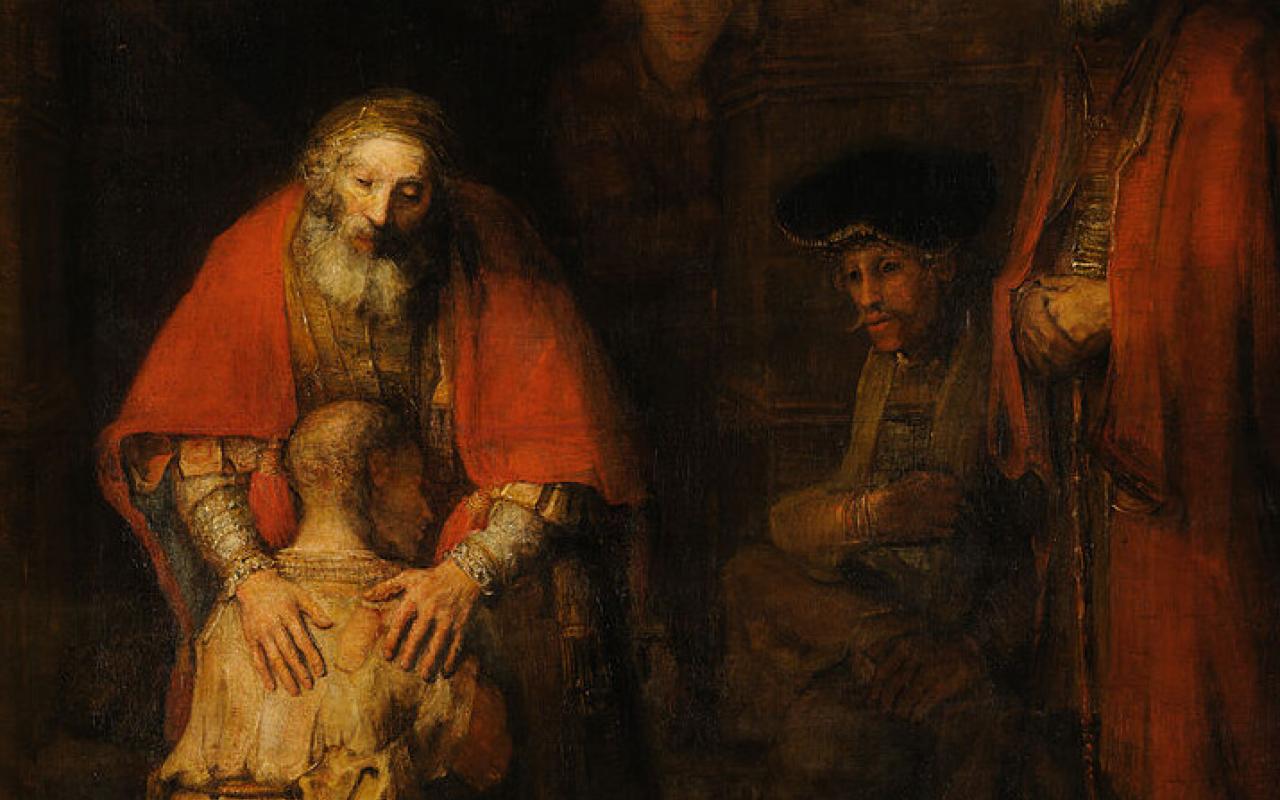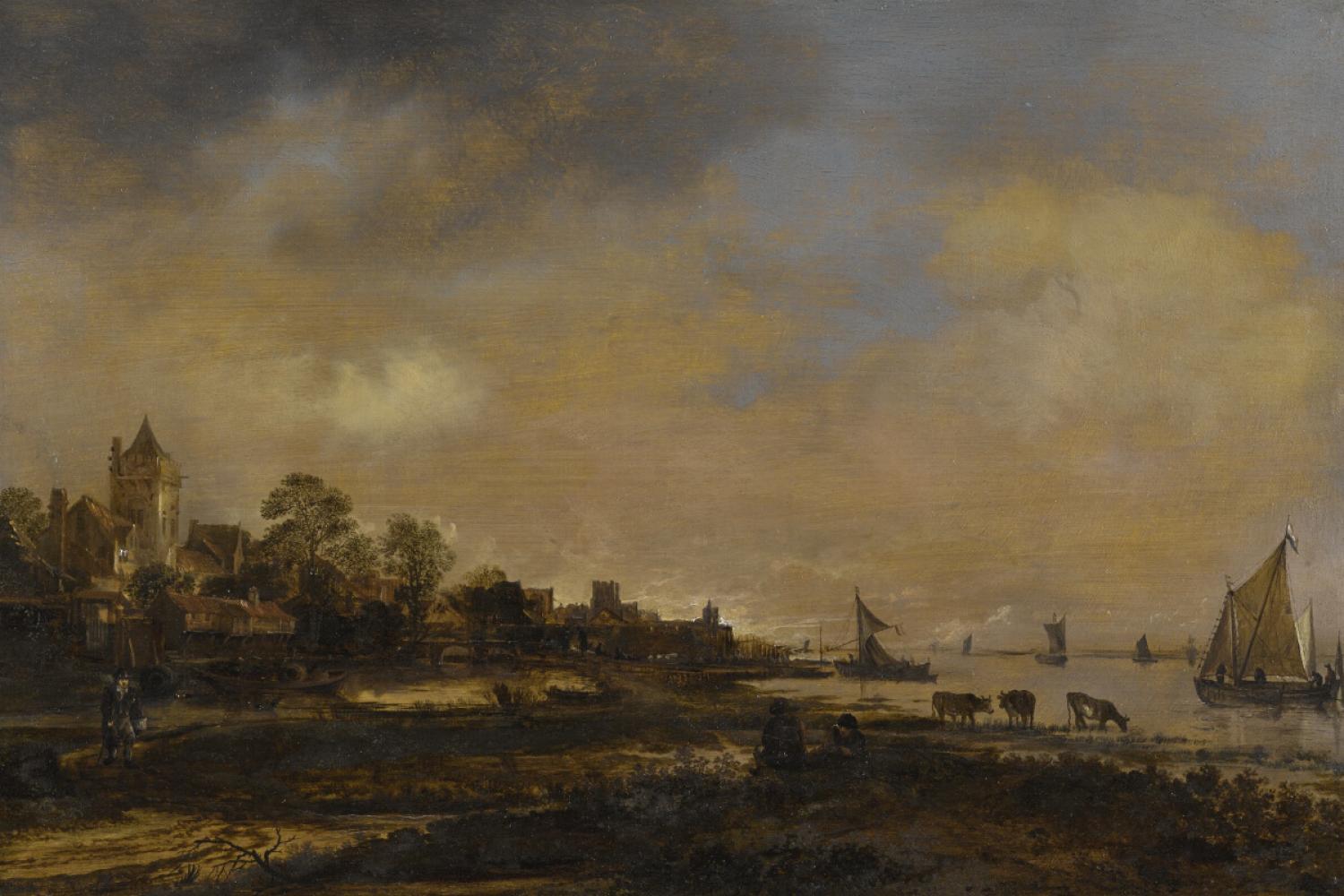
Through a simple allegory, a challenge is presented: "Can it be that you have entirely forgotten who you are?"
Once upon a time in a kingdom far away there lived a young prince. He was a good lad, if sometimes a little thoughtless, and he spent his childhood in easy contentment, living in the palace of his father the King, who was kind and wise as well as powerful and wealthy.
One day, when the prince had grown up and was coming into his young manhood, the King called him into his presence.
“My son,” he said, speaking in a tone more serious than usual, “the day is soon coming when the kingship will be yours. All my possessions and all the responsibilities of the kingdom will be placed in your hands.”
At this, the prince’s heart rose and a blush came to his cheek. He had long been awaiting and hoping for this moment, and he began to entertain grand visions of himself as king, thinking of all the castles and lands and ships and horses and feasting he would enjoy, and of the many servants he would have at his beck and call.
“Father,” he said, “I am ready for that day.”
The king looked at him with affection, but there was hesitancy in his glance.
“Of that I am not so certain,” he replied. “There is much yet for you to learn before you can reign wisely and well. Now listen carefully: I am sending you to a distant country, where you will be trained to take up your duties. In that land you will go about in disguise. You will not present yourself as a prince; instead, you will assume the role of a common laborer and you will work for your pay, and live among simple folk, and so you will learn something of the ways of the people you must one day rule.”
The Prince was surprised at hearing this, and none too pleased.
“Go away?” he said. “And not be a prince? Isn’t that who I am?”
“Indeed, it is,” replied the King, “and you must never forget your royal lineage. You will undergo many hardships, and the hardest of all will be to remember your true identity in the midst of a people who know nothing of our kingdom. Nonetheless, this is a necessary education for you. It will make you fit for your office and it will benefit those who will be under your rule.”
“Education!” thought the prince to himself. “That sounds bad.” He had never enjoyed his lessons, preferring to wander around the countryside, hunting and playing games of sport. He asked the King: “How long, Father, will I be away in that land, in disguise?”
The King’s face softened at the sight of his son’s disappointment, and he looked at him with love.
“The exact time is not yet settled,” he said. “It may be a few months; it may be many years. I will keep my eye upon you, watching your progress, and I will see that you have everything you need. I will send along my most trusted counselor with you as your companion. When the time is right, a letter will arrive, summoning you to your kingly coronation. When that letter comes you must drop whatever you are doing and return home. We will be awaiting you eagerly, and on your coronation day we will rejoice to see you take your place on the throne that has been destined for you from the moment you were born.”
The young prince took comfort at these encouraging words – but he still looked troubled.
“Father,” he said, “I would rather not go away. Can I not just stay in the palace and learn what I need to know here until the time comes for me to be king?”
“No, my son,” came the firm reply. “This is the only path to your inheritance. Be of good courage. It is the best way, and it is decided.”
With that, the prince boarded ship with his father’s trusted companion, and sailed for days and days upon the open sea until one clear morning he saw a dark low-lying mass on the horizon. The sailors hailed the land, and brought the ship slowly into harbor, and the prince disembarked and began his new life.
You will undergo many hardships, and the hardest of all will be to remember your true identity in the midst of a people who know nothing of our kingdom.
At first it was difficult for the prince to make his way in this foreign country. His new surroundings were colorless and uninteresting when compared to the lush gardens and glittering residences he had known. He and his companion had taken a small cottage, adequate to their needs but not very comfortable, a far cry from the luxury of his father’s palace. He was unaccustomed to hard work, and his job as a stonemason’s assistant left his back sore and his hands raw and hurting. He needed to learn the language of the people among whom he lived, and he did not much like the sound of it: harsh and guttural, so different from the singing melodies of Kingdom speech. On top of it all, he was no longer the center of attention as he had been in his father’s palace, and he found this difficult to bear. His co-workers treated him well enough, but with no special consideration, and he found their simple and sometimes coarse ways distasteful. His favorite time of the week was the visit he paid to the harbor, when a ship would arrive from distant lands with a packet of mail. How eagerly he would search for an envelope with his father’s coat of arms upon it, telling him that it was time to return home!
As the weeks and months passed, the prince began to accept his new situation more calmly. His muscles hardened and his hands became less delicate, and he learned the goodness of a day’s work and the satisfaction of a job well done. He came to know his fellow workers better, and he learned to sympathize with their concerns and to gain a taste for simple things. Yet still he yearned for his home and his father’s palace. Every evening he and his companion would talk eagerly together in their native tongue, remembering all their old friends and wondering what they were doing. They would sing Kingdom songs, and celebrate special festival days, putting off their drab clothing and dressing in the rich and colorful Kingdom style, and they would feast on fine Kingdom delicacies. And every week, as the prince returned from the harbor without a letter, he would say to his companion, “How long must it be? When do you think my father will send me the summons for my coronation?” The reply was always the same. “In good time, my prince. Keep hard at your training and remember the last words your father spoke to you: ‘Never forget who you are.’” The prince would sigh, and look to the east where the ocean lay, and a great longing would come over him.
Thus the months passed into years. Little by little a change began to come over the prince, though he hardly knew it. Less and less often would he speak with his companion in their native tongue; less and less frequently would they put on their Kingdom clothing and sing festive Kingdom songs. The prince found it ever harder to remember his father and his father’s palace, and the thought of the Kingdom began to disappear from his mind like a dream that fades upon waking. His companion would sometimes gently remind him of the home to which he would one day return, the duties waiting for him, and the privileges he would possess there, all to little effect. The prince kept up his weekly visit to the harbor, but it had become no more than a thoughtless habit, hardly occupying his mind. Sometimes he would even forget to go. On those occasions, his companion would ask him about it, and he would smile sheepishly, and dutifully set out, though he would often get distracted along the way and never arrive. As time went on, he found his companion’s reminders annoying. “Why should I have to make this trip every week on a fool’s errand?” he would fume to himself. “A hot two hours that accomplishes nothing. I have better ways to occupy my time.” So his anger smoldered, and a creeping resentment against his companion began to rise within him.
One late winter’s day, it happened that the stoneworkers were given an afternoon off. The prince happily returned to his hut, ate a hearty lunch, and was just settling into a pleasant nap when his companion came upon him and woke him by lightly shaking his shoulder.
“Is not this the day when the mail ship comes into harbor?” he said. “Who knows? There may be news from the Kingdom.”
The prince, irritated at having his nap disturbed, fidgeted and grumbled. At the mention of the harbor and the Kingdom his anger flared up. He turned a harsh face on his companion and spoke out loud what he had long been thinking privately.
“All this talk and bother about the Kingdom! Always the Kingdom! I’ve had enough of it! I am living in this country now, and it is right that I concern myself with matters of importance here.”
“True enough,” came the calm reply. “But that is no reason to forget who you are and what your future duties will be. Remember, my prince, this is not your home, but only a place of necessary exile.”
“Prince!” snarled the youth with an edge of contempt in his voice. He turned away with a scowl and resettled himself on his bed and was soon fast asleep. From that day on, he and his companion stopped speaking about the Kingdom, and he went no more to await the mail boat at the harbor.
Can it be that you have entirely forgotten who you are?
One day, about a year later, the prince, greatly excited, came bustling into the hut. “What good news!” he said exultantly, jumping about and humming to himself.
His companion looked up with an expectant face. “The letter! Has it finally come?”
The prince stopped short. “Letter? What do you mean, letter?”
“You know. The letter. From the King!”
“Oh, that,” said the Prince with a frown. “No, no, something much more important. I’m so pleased! I’ve just been given a promotion!” His face again grew animated and his eyes sparkled.
At this his companion looked puzzled. “A promotion?”
“Yes! I’ve been working so hard for it. I’m no longer to be assistant stonemason. I have now reached the exalted rank of associate stonemason! Of course you see what this means!”
“I’m sorry, but I’m afraid I don’t.”
“Oh, but look! This means I’ve finally begun to make my way up the ladder. This new position comes with a healthy pay raise. We can get out of this hut and move into a real house with three rooms! Imagine: three whole rooms! And that’s just the beginning. If I play my cards right, after a few years I may become a master stonemason, and one day even a partner in the business! That would put me in charge of a dozen other men!” The prince’s eyes grew soft and wistful. “What a great day that would be for me!” he said dreamily.
“But, but,… what has all this to do with your future?”
“What can you mean?” replied the prince sharply. “It has everything to do with it. Don’t you hear what I’ve been saying? A glorious career path is opening up. It will secure my future!”
“But…”
“But what?”
“But what about your Father… and the kingdom you are to inherit… and the vast lands and peoples you will rule… and the letter announcing your coronation?”
“Look,” said the Prince curtly, “I don’t mean to be rude or anything… but I don’t know what you’re talking about. All that Kingdom nonsense – it’s just an airy dream.”
His companion looked at him sadly. In a quiet voice he said, “Can it be that you have entirely forgotten who you are?”
“Not at all,” replied the prince smugly. “I know exactly who I am: Fred, the stonemason. The associate stonemason. Soon to live in my own house and with big things in store!”
Two months later, on the first day of spring, the mail ship sailed into the harbor. Among its haul of mail was a letter in a beautiful white envelope. It was marked with a regal coat of arms in gold, and the words ‘The Prince” were embossed in scarlet upon it. So impressive was its appearance that the harbor officials put it in a special place and waited with interest to see who would come to claim it. But no one ever arrived to pick it up, and so it sat, month after month and year after year, until the colors faded and the envelope turned to gray and the letter at last crumbled into dust.
"If you have not been faithful in the unrighteous mammon, who will entrust to you the true riches? And if you have not been faithful in that which is another's, who will give you that which is your own?" (Luke 16:11-12)



